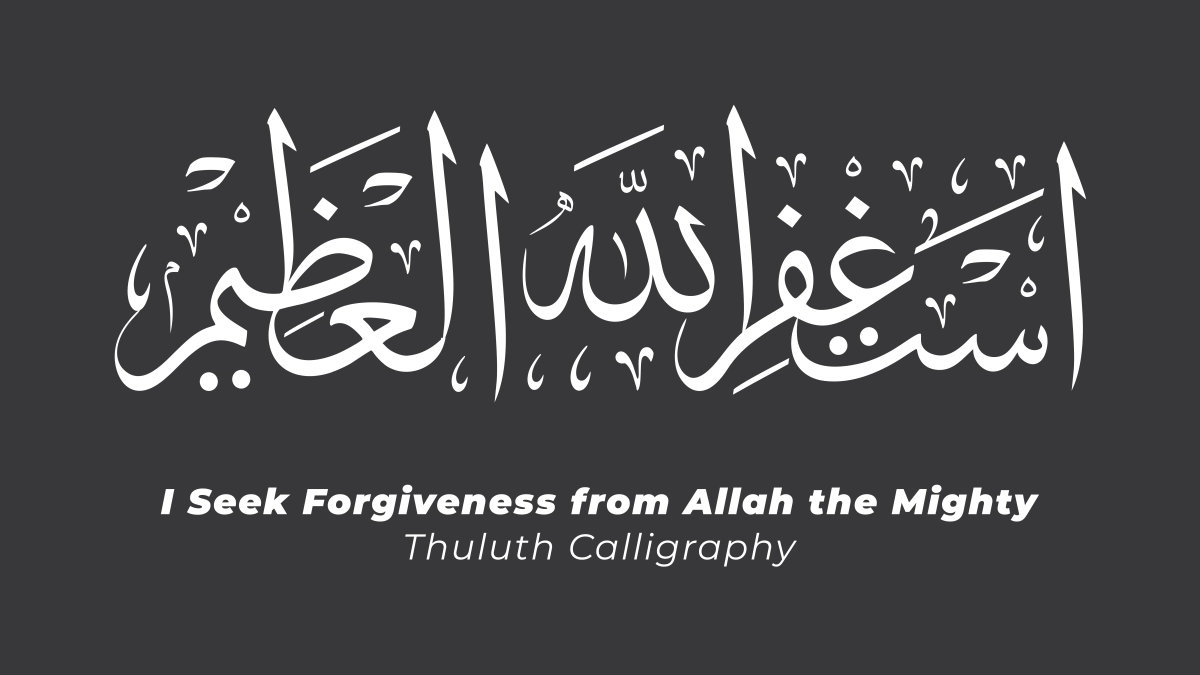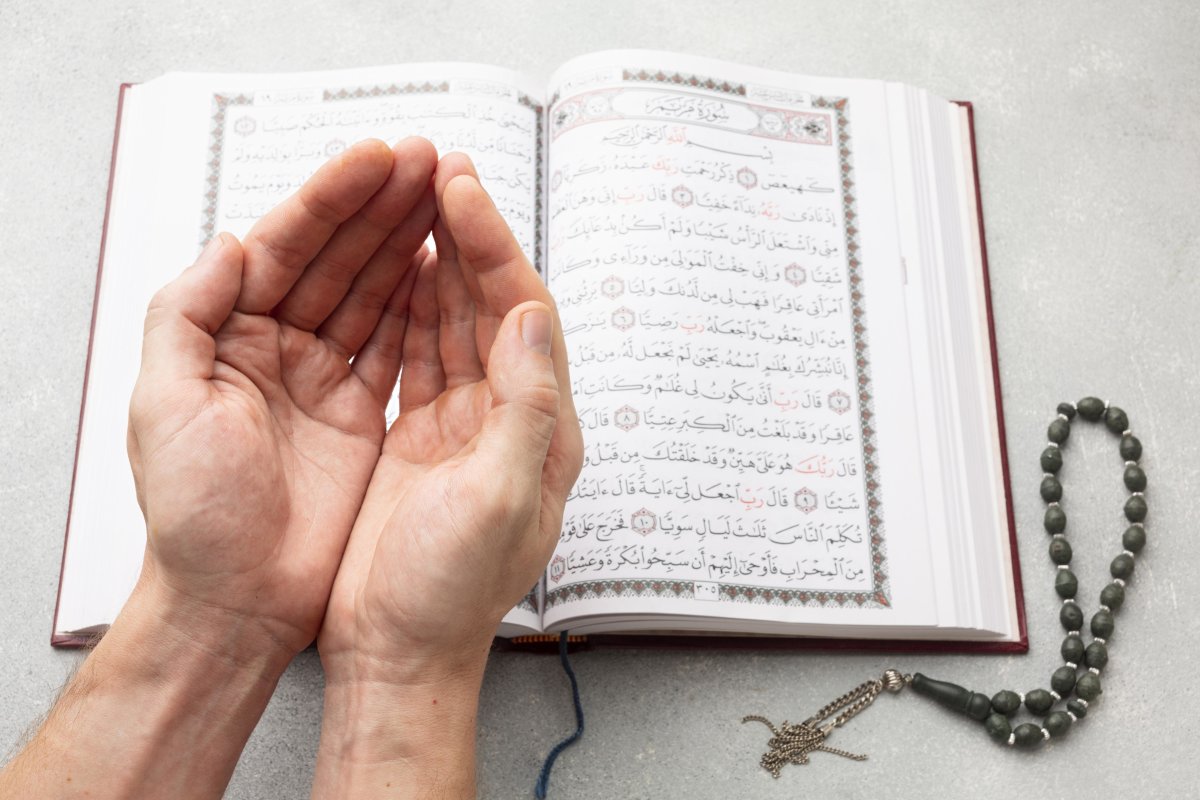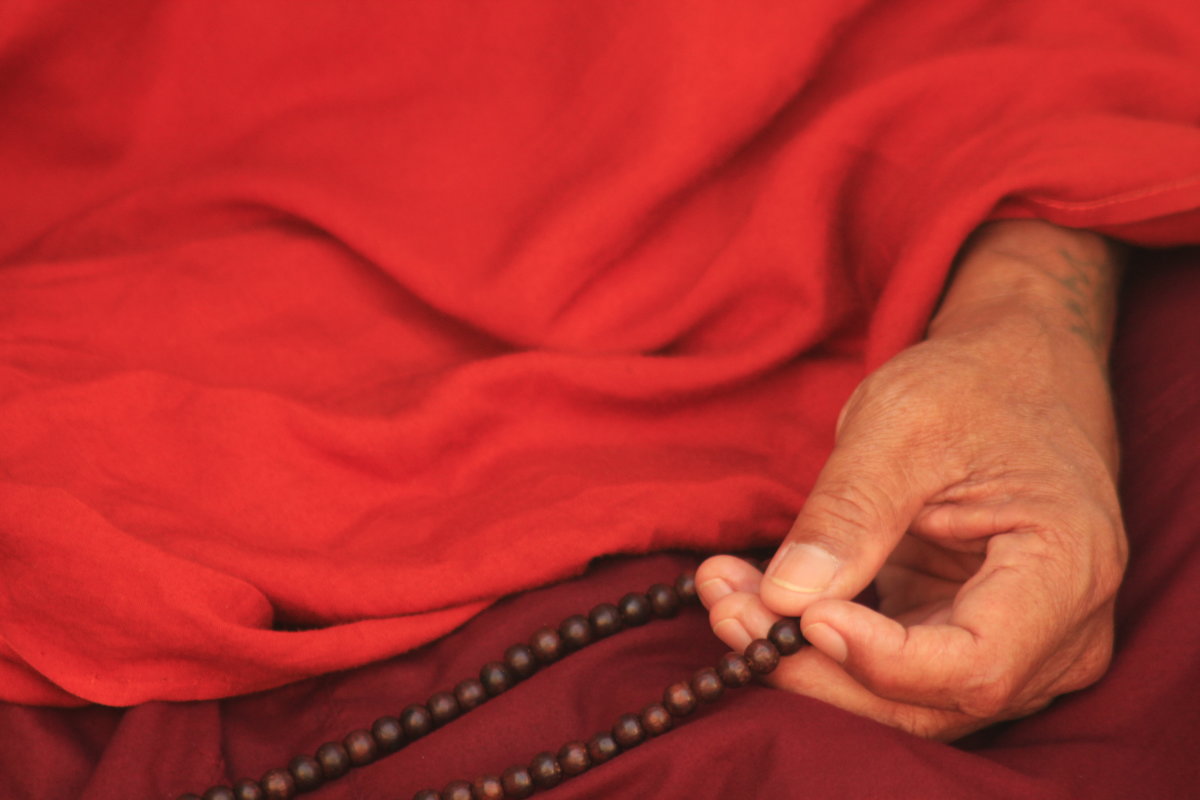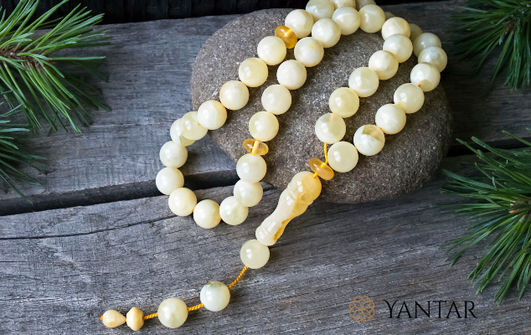
In Islam, seeking forgiveness, known as Istighfar, is a central aspect of a Muslim's spiritual journey. It is a form of devotion that brings the believer closer to Allah, cleanses the soul, and helps overcome the burdens of sins and mistakes. Through the act of asking for forgiveness, Muslims acknowledge their imperfections and rely on the mercy and compassion of Allah to find peace, healing, and spiritual growth.
The amber rosary is a beautiful tool used in Islamic traditions for Istighfar and other acts of remembrance (dhikr). The natural qualities of amber, combined with its spiritual significance, make it a cherished item in worship, particularly in seeking forgiveness through Istighfar.

Understanding Istighfar in Islam
The Arabic word Istighfar (الاستغفار) comes from the root word غفر (Ghafara), meaning to cover, to conceal, or to pardon. In the Islamic context, it refers to seeking Allah’s pardon for sins and shortcomings. The act of seeking forgiveness is not limited to asking for pardon after sinning but is an essential aspect of daily worship. Even the Prophet Muhammad (peace be upon him), who was sinless, made Istighfar over seventy times a day, teaching us the importance of constantly seeking Allah's mercy.
Forgiveness in Islam is closely tied to Allah's divine attributes of being the All-Forgiving (Al-Ghaffar), the Merciful (Ar-Rahman), and the Compassionate (Ar-Raheem). Allah has promised that He is ever-willing to forgive His servants when they repent sincerely.

The Significance of Seeking Forgiveness
Seeking forgiveness holds a tremendous place in Islamic teachings. The Qur'an and Hadith emphasize the importance of Istighfar for both spiritual and worldly success. Some key benefits of seeking forgiveness include:
- Attaining Allah’s Mercy: Allah has promised in the Qur’an that He will forgive those who sincerely repent, regardless of the enormity of their sins. In Surah Az-Zumar (39:53), Allah says:
"Say, 'O My servants who have transgressed against themselves [by sinning], do not despair of the mercy of Allah. Indeed, Allah forgives all sins. Indeed, it is He who is the Forgiving, the Merciful.'" - Inner Peace and Contentment: Seeking forgiveness clears the heart from guilt, sorrow, and anxiety. It allows the believer to reconnect with Allah and feel inner peace.
- Protection from Punishment: Regular Istighfar helps shield believers from the consequences of their actions in this world and the hereafter.
- Bringing Blessings and Provisions: Istighfar opens the doors of sustenance, abundance, and blessings. In Surah Nuh (71:10-12), Allah says:
"And said, 'Ask forgiveness of your Lord. Indeed, He is ever a Perpetual Forgiver; He will send [rain from] the sky upon you in [continuing] showers and give you increase in wealth and children and provide for you gardens and provide for you rivers.'"

Amber Rosary: A Spiritual Tool for Istighfar
Amber rosaries are commonly used for dhikr (remembrance of Allah) and Istighfar. Amber, a fossilized tree resin, has been valued for its natural beauty and healing properties for centuries. When used as part of a rosary, amber not only adds an aesthetic element to worship but also provides a tactile way to focus on the act of remembering Allah and seeking His forgiveness.
Benefits of Using an Amber Rosary for Istighfar:
- Natural Properties: Amber is believed to have calming and healing properties, helping the worshipper maintain focus and a peaceful state of mind during prayer.
- Durability and Comfort: Amber rosaries are durable, lightweight, and smooth to the touch, making them comfortable to use for extended periods during dhikr and Istighfar.
- Symbolic Value: Amber, being a product of the natural world, reminds the worshipper of Allah’s creation and the beauty of the Earth. It enhances the spiritual experience, allowing the believer to connect with nature while engaging in worship.
- Elegance in Worship: Many Muslims appreciate the elegance and refinement that an amber rosary adds to their daily prayers and rituals. It not only serves as a tool for counting Istighfar but also reflects the serenity and beauty of Islamic worship.
Duas for Forgiveness in Arabic, Transliteration, and English Translation
In Islam, there are many prescribed supplications (duas) for seeking forgiveness from Allah. These prayers, when recited with sincerity and humility, can cleanse the heart, remove sins, and earn Allah's pleasure. Below are some of the most powerful and commonly recited duas for forgiveness:

1. Sayyidul Istighfar (The Master of Forgiveness)
This dua is considered the most comprehensive and powerful supplication for forgiveness.
Arabic:
اللهم أنت ربي لا إله إلا أنت، خلقتني وأنا عبدك، وأنا على عهدك ووعدك ما استطعت، أعوذ بك من شر ما صنعت، أبوء لك بنعمتك عليّ وأبوء بذنبي، فاغفر لي فإنه لا يغفر الذنوب إلا أنت.
Transliteration:
Allahumma anta rabbi la ilaha illa anta, khalaqtani wa ana abduka, wa ana 'ala 'ahdika wa wa'dika mastata't, a'udhu bika min sharri ma sana't, aboo'u laka bini'matika 'alayya, wa aboo'u bidhanbi, faghfir li fa innahu la yaghfiru adh-dhunuba illa anta.
Translation:
"O Allah, You are my Lord, there is no deity except You. You created me, and I am Your servant. I am faithful to my covenant and my promise to You as much as I can. I seek refuge in You from the evil of what I have done. I acknowledge before You all the blessings You have bestowed upon me, and I confess to You all my sins. So forgive me, for none forgives sins except You."
2. Short and Simple Istighfar
This concise dua is easy to recite anytime.
Arabic:
أستغفر الله العظيم
Transliteration:
Astaghfirullah al-'Azim.
Translation:
"I seek forgiveness from Allah, the Mighty."
3. Dua from the Qur'an (Surah Al-A'raf 7:23)
This is the dua of Adam and Hawa (Eve) after they realized their mistake in the Garden.
Arabic:
رَبَّنَا ظَلَمْنَا أَنفُسَنَا وَإِن لَمْ تَغْفِرْ لَنَا وَتَرْحَمْنَا لَنَكُونَنَّ مِنَ الْخَاسِرِينَ.
Transliteration:
Rabbana dhalamna anfusana wa illam taghfir lana wa tarhamna lanakoonanna minal khasireen.
Translation:
"Our Lord, we have wronged ourselves, and if You do not forgive us and have mercy upon us, we will surely be among the losers."
4. Dua of Yunus (Prophet Jonah) in the Belly of the Whale
This dua is extremely powerful for removing hardship and seeking forgiveness.
Arabic:
لَا إِلَهَ إِلَّا أَنتَ سُبْحَانَكَ إِنِّي كُنتُ مِنَ الظَّالِمِينَ.
Transliteration:
La ilaha illa anta subhanaka inni kuntu min az-zalimeen.
Translation:
"There is no deity except You; exalted are You. Indeed, I have been of the wrongdoers."
5. Istighfar for Forgiveness of All Sins
This dua asks for comprehensive forgiveness of all sins—major and minor, hidden and public.
Arabic:
اللهم اغفر لي ذنبي كله، دقه وجله، وأوله وآخره، وعلانيته وسره.
Transliteration:
Allahumma ighfir li dhanbi kullahu, diqqahu wa jillahu, wa awwalahu wa akhirahu, wa 'alaniyyatahu wa sirrahu.
Translation:
"O Allah, forgive me all my sins, the minor and major, the first and the last, the open and the secret."
The Role of Sincere Repentance (Tawbah)
While Istighfar refers to the act of seeking forgiveness through supplication, sincere repentance in Islam is known as Tawbah. Tawbah is not simply about verbally asking for forgiveness but involves a heartfelt commitment to refrain from sins, feel remorse, and resolve not to return to those actions.
The process of Tawbah is complete when the following conditions are met:
- Remorse: Feeling genuine regret for the sin committed.
- Cessation: Immediately stopping the sinful act.
- Resolve: A firm intention not to return to the sin in the future.
- Rectification: If the sin involved the rights of another person, it is necessary to seek forgiveness from that person or rectify the wrong.

Seeking forgiveness through Istighfar is a practice that brings peace, closeness to Allah, and spiritual purification. It is an acknowledgment of our human limitations and Allah’s boundless mercy. As Muslims, it is important to make Istighfar a regular part of our daily lives, and whenever we falter, we should turn to Allah with sincerity, knowing that He is always ready to forgive.
The beauty of Islam lies in the fact that no sin is too great for Allah's mercy, as long as the believer sincerely seeks forgiveness and strives to improve. By incorporating these duas into your daily prayers, you can strengthen your connection to Allah and continually purify your soul.
May Allah grant us all the ability to sincerely seek His forgiveness and envelop us in His mercy. Ameen.




 Jewelry
Jewelry Silver amber jewelry
Silver amber jewelry Amber pictures
Amber pictures Souvenirs
Souvenirs